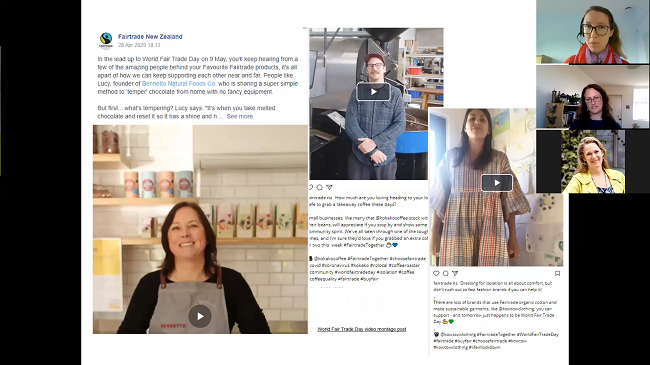The curious incident of the sanitised sausage sizzle
At our recent webinar we asked Colmar Brunton what consumer habits and trends they’re seeing, both here and globally, during COVID.
In life before Level 3, sausages sizzles were a mainstay of our local DIY store; my Dad a regular customer. A creature of habit, you can imagine his surprise a few weeks ago when he found not only his favourite ketchup and mustard on offer but a third, Unidentified Mystery Sauce.
Luckily for Dad the man in front of him took the plunge first, squirting a long line of blue tinged ooze on his bread. Alas his condiment courage was not rewarded. Much to the amusement of his fellow sausage sizzlers, he’d just squeezed hand sanitizer onto his snack.
Habits for the new normal
There are some habits we’ve developed during lockdown that we want to hold to. These include good hand hygiene, albeit in a way that doesn’t ruin a BBQ.
At our recent webinar we asked Colmar Brunton what consumer habits and trends they’re seeing, both here and globally, during COVID.
1. Sustainability values are holding true
Although consumers are preoccupied with the immediate situation of COVID, their core values remain true. These values include supporting companies that try to do good, and those that offset their environmental impact.
2. Climate change remains a key issue
There are many parallels between COVID and the climate crisis. Both, for example, require shared responsibility. As climate change features in the Global Risk Report for the first time, so too is it a key issue for consumers. Following the first COVID wave, consumers feel climate change should be more of a priority than before.
3. Sustainable behaviours go by many names
Consumers are thinking local, and 60% of us plan to provide more support to NZ owned businesses. Many of us want to continue work from home, and are looking to change to lower emission forms of transport, like biking. These choices may not be driven by sustainability, but have implications for it.
So what are the opportunities for business? We recently spoke to Fairtrade and Ecostore about what they’re doing to capitalise on these trends.

1. Continuing to bridge the value/action gap
This means making regenerative choices easy and appealing to consumers. As we rethink our new future, brands are encouraged to be bold with initiatives that create change, like Ecostore’s closed recycling loop initiative.
2. Telling human-centred stories
This includes telling stories about the people in your supply chain and business in an authentic way that emphasises collective progress towards share sustainability goals. Fairtrade’s campaign for World Fairtrade Day is an example, highlighting that Fairtrade means being part of a community that is strong, connected and cares for one another.
3. Demonstrating a commitment to wellbeing
We continue to witness a move beyond creating value for shareholders to creating value for the environment and communities. Companies which can demonstrate their contribution to their staff, communities and environment are in a strong position to build on this.
Bringing it back to balance
Like hand sanitizer on hot dogs, and my mid-afternoon biscuit binge, some lockdown habits need to change. Others are an opportunity for business. Finding a better balance between the health of people, planet and the economy will help us navigate these uncertain times.
Contact: Jay Crangle, Manager, Strategy, Sustainable Business Council
Phone:
Email:
